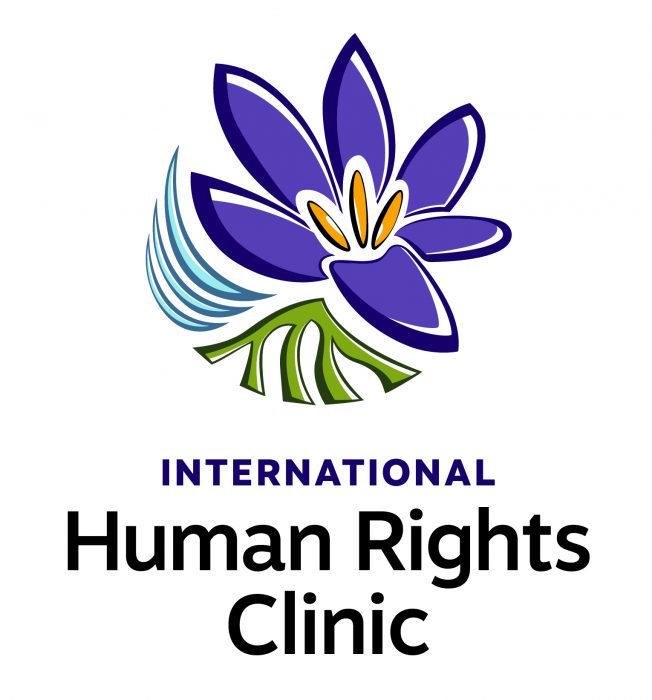![Left to right: Chief Wayne Desjarlais (Ebb and Flow First Nation), Grand Chief Jerry Daniels [BA (Economics)/08] (Southern Chiefs' Organization Inc.), Tréchelle Bunn (2L) [BA/23], and Chief Kurvis Anderson (Pinaymootang First Nation).](https://news.umanitoba.ca/wp-content/uploads/2024/11/HRC-Picture-e1731022651330.jpg)
International Human Rights Clinic student participates in United Nations sessions in Geneva
Project part of UM Faculty of Law's newest experiential learning clinic
This fall, after a successful funding application authored by Professors Kjell Anderson and Nathan Derejko, the inaugural International Human Rights Clinic (IHRC) at Robson Hall was launched under the leadership of Clinical Counsel, Allison Fenske. The clinic marks a significant step in providing students in the Faculty of Law’s Juris Doctor, Master of Laws and Master of Human Rights degree programs with experiential learning opportunities that blend human rights law with clinical practice.

The International Human Rights Clinic at the UM Faculty of Law opened this fall.
Fenske shared that through a combination of clinical projects and academic learning, “students are immersed in human rights work. By engaging with mechanisms that protect and promote human rights at the international, regional, and domestic levels, students gain hands-on experience while also developing practical skills in strategic advocacy, focusing on some of today’s most pressing human rights challenges.”
For the 2024-2025 academic year, students in the IHRC can participate in one of four initial projects that align with the IHRC mission to advance human rights through collaborative research, experiential learning, advocacy and litigation.
Second-year law student Tréchelle Bunn is working on an IHRC project in partnership with the Southern Chiefs’ Organization (SCO). The project focuses on advocating for the rights and interests of the 33 First Nations in southern Manitoba that SCO represents.
A key part of Bunn’s project with SCO through the IHRC involved preparing for and participating in the United Nations Second intersessional meeting of the Human Rights Council on concrete ways to enhance the participation of Indigenous Peoples in the work of the Council. The Second Intersessional Meeting was held from October 17 to 18 at the Palais des Nations in Geneva, Switzerland.
![Pictured in the first image from left to right is: Chief Kurvis Anderson (Pinaymootang First Nation), Tréchelle Bunn (2L) [BA/23], Peter MacDougall (Ambassador and Permanent Representative to the UN Office in Geneva), Grand Chief Jerry Daniels [BA (Economics)/08] (Southern Chiefs' Organization Inc.), and Chief Wayne Desjarlais (Ebb and Flow First Nation).](https://news.umanitoba.ca/wp-content/uploads/2024/11/Permanent-Missing-of-Canada-picture-800x600.jpg)
Left to right: Chief Kurvis Anderson (Pinaymootang First Nation), Tréchelle Bunn (2L), Peter MacDougall (Ambassador and Permanent Representative to the UN Office in Geneva), Grand Chief Jerry Daniels [BA (Economics)/08] (Southern Chiefs’ Organization Inc.), and Chief Wayne Desjarlais (Ebb and Flow First Nation).
During the meeting, Bunn delivered four key interventions before the Human Rights Council on behalf of SCO, offering specific recommendations on how the Council can enhance Indigenous Peoples’ participation in its work. In one intervention, Bunn emphasized the importance of Indigenous Peoples’ involvement in the work of the Human Rights Council and all UN mechanisms, stating, “There should be no forum where UN bodies and entities are discussing the rights of Indigenous Peoples without the full and effective participation of Indigenous Peoples.”
In addition to advocating at the Second Intersessional Meeting, Bunn attended the 89th Session of the United Nation’s Committee on the Elimination of Discrimination against Women (CEDAW). Bunn also had the opportunity to attend a reception at the Permanent Mission of Canada in Geneva, where she connected with Canada’s CEDAW Delegation and Peter MacDougall, the new Permanent Representative of Canada to the UN Office at Geneva.
Reflecting on her experience, Bunn shared, “It was inspiring to be among Indigenous leaders from around the globe, and I look forward to continuing my journey as a human rights advocate. I am so grateful to SCO and for the opportunity to be part of the IHRC, where I can combine my passion for advocating for my community and all Indigenous Peoples with the chance to build a solid foundation in human rights law through the seminar portion of the course.”
Through experiences like Bunn’s, the IHRC is building meaningful partnerships with community organizations and showcasing its commitment to providing law students with the education and hands-on experience essential for a future in human rights law and advocacy.






